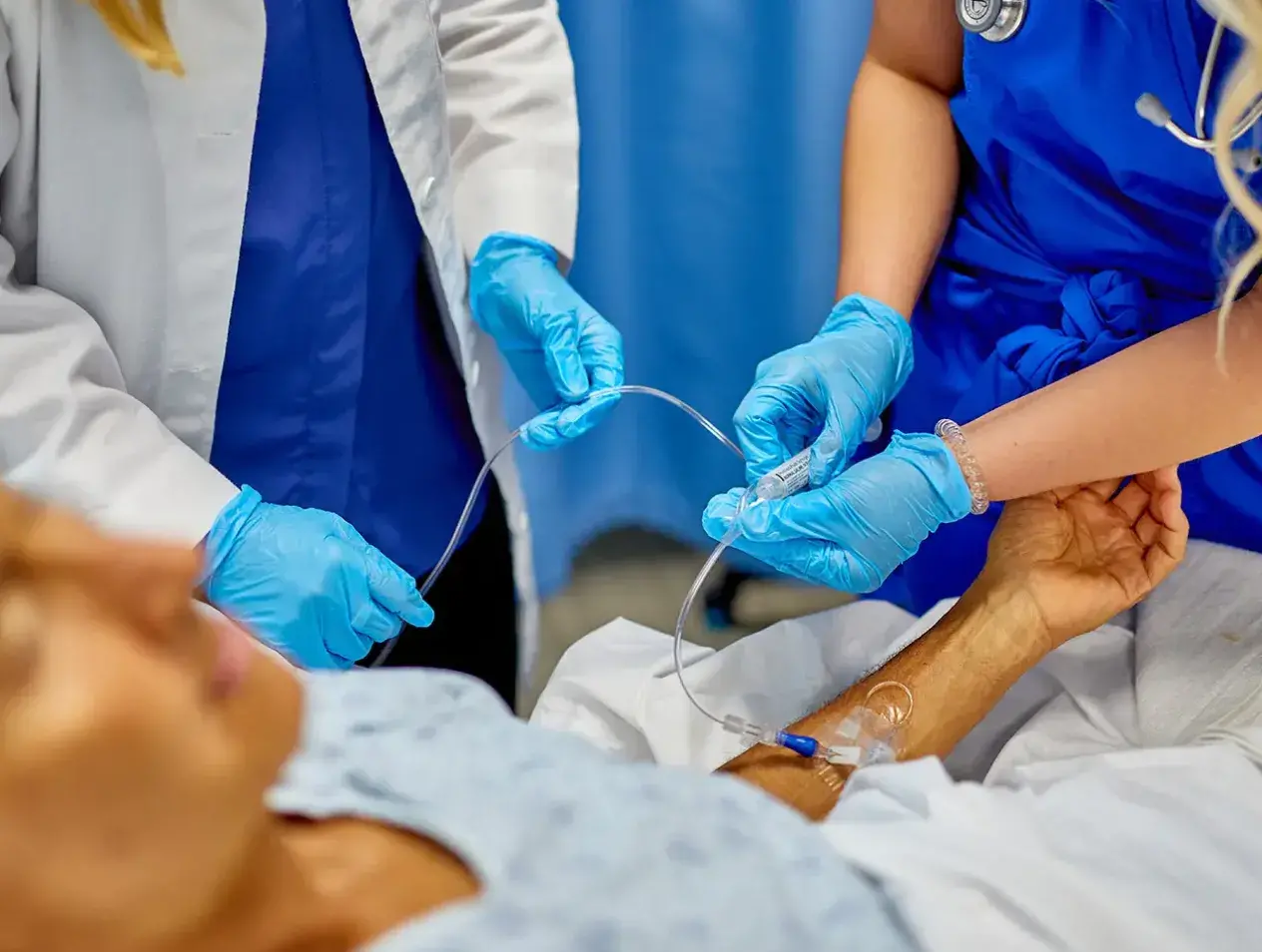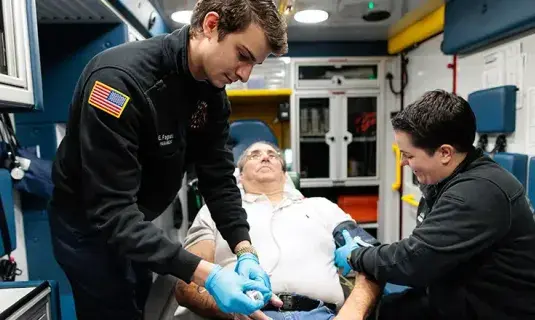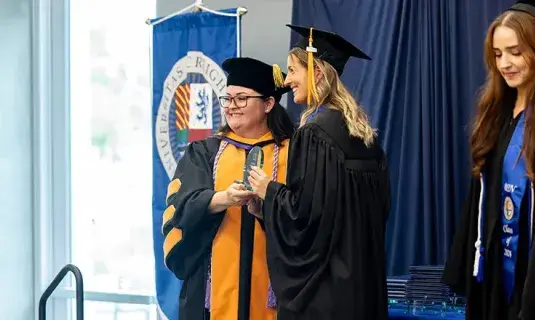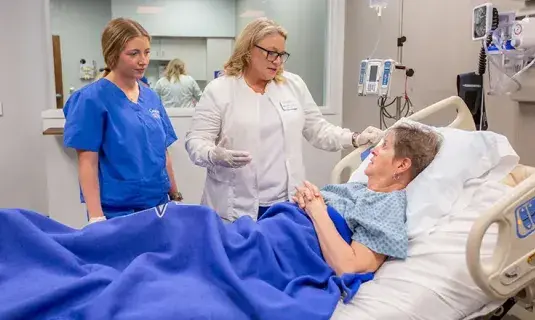
About the College of Nursing
Forming Skilled, Confident and Compassionate Professionals
Creighton University College of Nursing has a national reputation for providing an excellent education, nurturing a commitment to service, and staying at the forefront of the ever-changing fields of nursing and paramedicine.
We help students gain the knowledge and critical thinking skills they need to deliver care with confidence. We also emphasize the values that lead our students to interact with patients and their families with professionalism and compassion.
With numerous hands-on learning opportunities—inside and outside the classroom—our graduates are well prepared to shape the future of healthcare in tangible ways.

of grads are employed, pursuing advanced studies or participating in a service program within 6 months (2024 undergraduates)

FIVE-YEAR NURSE PRACTITIONER CERTIFICATION PASS RATE AVERAGE (2020-2024)

FIVE-YEAR NCLEX PASS RATE AVERAGE (2020-2024)

cumulative pass rate for 2023 Paramedic National Registry Exam

First Attempt Pass Rate on the 2023 Paramedic National Registry Exam for Certificate, Associates and Bachelor's Students

Program Retention Rate for Paramedicine Certificate Program Students

of Nursing and EMS Faculty Hold a Master's Degree or Higher

Dean’s List Recipients
Congratulations to the College of Nursing students who have earned a place on the College of Nursing Dean’s List. The Dean’s list recognizes students who each earned a GPA of 3.5 or higher.
Accreditation
The baccalaureate degree program in nursing, master’s degree program in nursing, Doctor of Nursing Practice program and post-graduate APRN certificate program at Creighton University are accredited by the Commission on Collegiate Nursing Education (CCNE).
On the recommendation of the Committee on Accreditation of Educational Programs for the Emergency Medical Services Professions (CoAEMSP), our cutting-edge paramedic program is accredited by the Commission on Accreditation of Allied Health Education Programs (CAAHEP). The Creighton EMS program is also recognized as a Nebraska-approved EMS training agency by the Nebraska Department of Health & Human Services.
The University reserves the right to change and to make exceptions to the provisions of Handbooks at any time and to apply any change or to make an exception applicable to any student without regard to date of admission application or date of enrollment. The College of Nursing BSN, DNP, MSN, and Post-Graduate Certificate handbooks are neither a contract nor an offer to enter into a contract. As a student in the nursing program at Creighton University, you are responsible for being familiar with policies and procedures of the University and College of Nursing. These student handbooks supersede previous editions and expand upon and provide specific information supplemental to that in the Creighton University Catalogs. These handbooks apply to all students enrolled in any nursing program. In addition, these handbooks apply to all BSN, MSN, DNP, and Post-Graduate Certificate students. Please refer to the Creighton University Catalogs for all general information regarding undergraduate and graduate programs at Creighton University.
Contact Us
Email Creighton College of Nursing
402.280.2703
To reach the Dean's Office, contact Bailey Thompson.
Dept. of Paramedicine
402.280.1280











